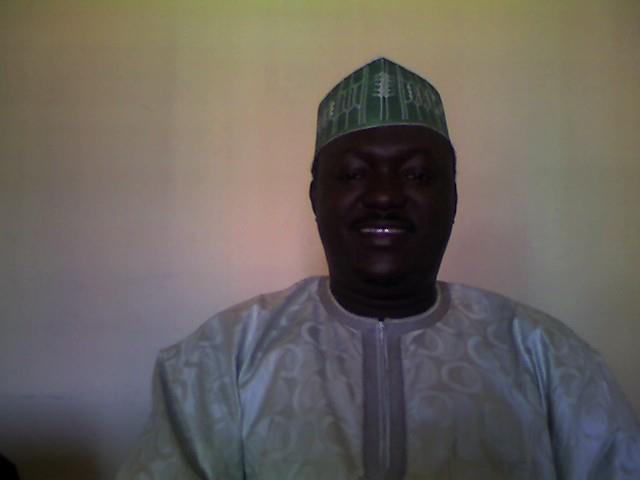Written by Dr Mahmoud Abdulwahab
That Nigeria is training Doctors and other health care professionals for Europe, America and the Middle East and even South Africa is no longer news. That Nigerians spend over 400Billion Naira every year on medical tourism is a reality that we have to live with into the foreseeable future. Few weeks ago the Kingdom of Saudi Arabia conducted recruitment interview for Doctors in Lagos and Abuja where over 1000 Nigerian Doctors paid to be interviewed, a lot of them specialists. Rightly, the exercise has generated a lot of concerns from well-meaning Nigerians. On the 5th of April this year President Muhammad Buhari while inaugurating the 41st set of NIPS charged the participants to conduct researches and find out how Nigeria can curve medical tourism and ensure Universal Health Coverage and halt doctor’s brain drain.
On Doctors brain drain-the push factors are all too obvious ; low/poor/irregular pay, poor/obsolete equipment, unwarranted inter professional rivalries, lack of clear career progression, unhealthy working environment, the urge to acquire new skills and so on and so forth.
On medical tourism- the push factors are similar-the desire by the patients to obtain standard medical care in a fast and humane ways (not that our care here is substandard but there are huge issues of long waiting time, lack of needed necessary diagnostic equipment, lack of proficiency by the physicians in certain procedures and so on). Man as an economically rational being always wants to maximize his utility.
But the question that has not been asked/discussed is- what are the origins of these push factors and how do we ameliorate them?
I submit that the push factors enumerated above are fundamentally offshoots of our inability as a nation to adequately, effectively and efficiently fund the health care delivery system.
Here I will attempt to critique Nigeria’s health financing policy and offer some practical solutions.
Since 2001 when the Abuja declaration was made, Nigeria has hinged its health financing policy on that declaration, I will argue that the 2001 Abuja declaration is not only faulty but lacks scientific basis. My aim here is to generate some form of reflections and open conversation within the health policy community as to how best we can move health and health care delivery to the NEXT LEVEL.
For a start we often inadvertently refer to health and health care delivery synonymously, they are not! Health care is only one component among so many components that determine HEALTH. Talk of portable water supply, education, agriculture, food security, roads, and socioeconomic stability, now these factors together with genetics, the environment and health seeking behavior of individuals collectively determine health outcomes. Here I will be talking of the economy of health care delivery.
What was the origin of the much talked about Abuja Declaration? In 2001 the then OAU now AU held its meeting in Abuja Nigeria and in one of its proceedings a critical look at the enormity of the burden of AIDS, Tuberculosis and Malaria facing Africa was taken and a decision was reached that for Africa to effectively tackle the burden of the so called ATM diseases member countries need to allocate ATLEAST 15% of their yearly NATIONAL budgets to health. SO THE DECLARATION WAS ACTUALLY ON THESE 3 DISEASES OF PUBLIC HEALTH IMPORTANCE NOT ON THE OVER ALL HEALTH CARE DELIVERY SYSTEM FINANCING! So we have got it wrong as a country if we think that allocating a paltry 15% of our national budget will fund health care delivery for 200million people and still keep our best brain at home and stop people from going on medical tourism. But the irony is that despite the inadequacy of the Abuja declaration, Nigeria has since 2001 never allocated more than 5% of its National budget to the health sector.
But just how much should a country spend on health? To answer this question we need to consider the fact that at the heart of the science of Economics is the principle of unlimited needs and limitedness or scarcity of resources and trying to find a perfect tradeoff between the two. Nobody or institution can really say how much should a country spend on the health care delivery of its people; however the factors to consider during health spending planning include but not limited to the following- what is the country’s current health status, where does it want to be, and when, what are the cost of inputs into the health services and even how much are its peers spending on health? There are some references to the fact that the WHO has recommended a 5% of GDP spending on health by member countries but careful literature search has not really revealed the source of this assertion. The point to note here is that GDP spending does not really translate to better health outcomes. For example among all the OECD countries the USA spends higher GDP percentages on health than say for example Japan; but we know too well that Japan has a better health outcome than the USA.
As far back as 2004 the UN commission on macroeconomics and health has recommended a per capita spending of 34 USD on health by member countries. For example Nigeria with a population of say 200million people should be spending 200 million multiply by 34 dollars per person. Therefore with an exchange rate of say 350 NGN to a US Dollar, Nigeria should be spending NGN2, 380,000,000,000.00 (Two Trillion Three Hundred and Eighty Billion Naira per year on health care delivery). Therefore this is almost a quarter of the 2019 budget. Can you see the fallacy of the Abuja Declaration? Not even the basic health care provision fund can provide this quantum of resources. The BHCPF is at best palliative!
So as I have pointed out elsewhere at the root of Nigeria’s inability to keep its Doctors within its borders and curve medical tourism is the gross inadequacy of financial resources to provide and maintain state of the art facilities and equipment, adequately remunerate these doctors and other paramedics and have a citizenry that can afford the services. And unfortunately we have no way of knowing how much Nigeria and Nigerians spends on health annually, the only thing we know is that 70% of health care spending in Nigeria is out of pocket spending(OOP). Nigeria does not keep NATIONAL HEALTH ACCOUNT and perhaps that is the only way a country’s national health spending can be kept, monitored and measured.
Health expenditure in Nigeria is largely out of pocket (70%) and majorly catastrophic to many citizens. To bypass this, countries all over the world have resorted to pre-payment systems to fund their health care delivery services- hence the concept of universal health care coverage as we know it today- that is having health care services that are available, accessible and affordable to most citizens without incurring financial hardship. But universal health care coverage does not mean free health care services as widely believed by some.
In the last 100 years, globally two major pathways for financing health care have emerged- the general tax revenue e.g. the NHS of England and health insurance (e.g. in the US)or a mixture of both. Unfortunately Nigeria’s health financing system is neither here nor there. Our National health insurance-the NHIS is no better than the 1887 Bismarck’s health insurance of Germany- after almost 42 years since its conception in 1976, it is yet to cover up to 5% of the population. We have repeatedly made pronouncement as to our commitment as a Nation to UNIVERSAL HEALTH COVERAGE and have chosen social health insurance as the pathway to reaching that goal but as pointed out above up to today we are only able to cover only 5% of the citizens with a care package that is both shallow and narrow. For sure social health insurance is a good way to attaining universal care coverage and has the potential to release trillions of Naira in to the health economy which could be used to address those push factors that are sending our best brains away in search of Saudi Arabia’s petrodollars! But the challenge with social health insurance is that for its successful implementation certain preconditions are needed- these include a very large formal sector (this makes premium collection easy), a high level of social solidarity (which makes risk pooling easier and reduces moral hazards).
But the brain drain can actually be turned into a force for good through brain gain. Nigeria has one of the biggest African Diaspora medical communities. In the UK alone Nigeria has over 5000 Doctors in various specialties. However for us to tap into this opportunity offered by this large pool of our Doctors in Europe, America and the Middle East we need to have a leadership in the Federal Ministry of Health that is vibrant, innovative and creative. Our successive leaderships in the health sector have not demonstrated that innovation and visionary leadership capacity that will take us to the NEXT LEVEL. They have all thought that their work starts and ends with equipping our teaching hospitals with medical equipment from the museums of Europe and America- remember the Obasanjo era VAMED project?
So Mr. President Sir your next Minister of health should be somebody that will do things out of the ordinary, who will generate that needed storm in the tea cup of the health sector and do something extraordinarily different. And that person must not necessarily be a Medical Doctor; contrary to popular belief. He can be a lawyer, an Engineer, a political scientist, an administrator, a Doctor, a Pharmacist, a Nurse Etc. He just has to do something remarkably different from what other health ministers have done before him.
To be continued



